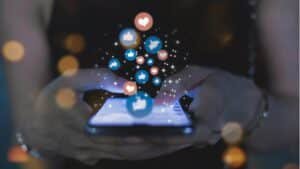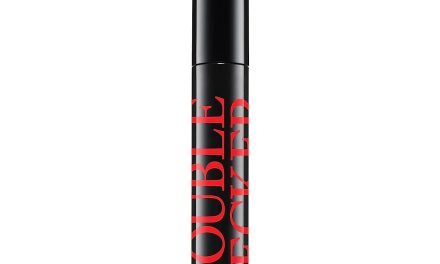
For millennia, healers sought to alleviate their patients’ suffering by tapping into a vein and draining blood. The practice emerged on several continents based on various theories of how disease worked. It was popular well into the 19th century and did not fall completely out of favor until the mid-20th century – because it didn’t work, and a better understanding of disease processes took over the medical imagination. Society, finally, made a necessary course correction.
There’s Another Course Correction That I Think We Should Make, and Pronto
When I enrolled at Radcliffe College (then the women’s part of Harvard), I was asked to submit a photo and biographical details for inclusion in a booklet that, I later discovered, was circulated among the freshman boys (and maybe the upper classmen, too, for all I know) as a resource for dating.
A word about numbers: there were around 1200 incoming boys vs 300 girls. That meant that since it was harder to get accepted at Radcliffe, we girls must be smarter than the boys, or so the boys reasoned. That made them feel the need to mock us; they called the photo booklet “The Pig Book.” We were hurt when they didn’t ask for dates, but we kept our heads down and studied harder.
Mark Zuckerberg showed up at Harvard precisely 40 years after I did. What he managed to do with the successor to “The Pig Book” is a matter of business legend. But note that some of the logic of that adolescent male precursor persists. You borrow people’s likeness and data and broadcast them wherever you wish regardless of the hurt you may be inflicting on them or the mockery you may be encouraging in the broader community.
The Practice Continues
I am saddened every time I hear about another teenage girl who hates herself because she doesn’t live up to the fantasies her peers and culture heroes post continually online. Some girls recognize that so-called influencers, who are easily spotted, are trying to sell them on an idea or a product. They remain vulnerable, nonetheless. Influence turns truly destructive when a nasty crowd piles on or an angry person issues a sickening threat.
Harry Lewis, a Harvard professor emeritus of computer science, explains that cell phones make it easy to be mean or cruel. He writes, “The shatterproof glass shields us from our correspondent’s emotions. (…) Children are especially vulnerable to the inhuman seduction of communicating with others while insulated from their reactions.”*
Regarding the proliferation of artificial intelligence, Lewis warns that in the presence of ubiquitous, invisible, superior intelligent agents, it’s up to us to make sure that we and our successors remember what makes us human. He wants the people developing – and consuming – AI to view the stuff through the lens of the humanities. I think our first duty is to protect our kids from the inhumanity they now endure.
A Radical Thought
What would happen if we stopped using social media altogether? The tech moguls would stop making money that they don’t need and wield less influence. The many private individuals who sell things or experiences online would migrate to other web-based vendor platforms. Politicians would be able to sidestep confrontation with China over TikTok.
Advertising might return to newspapers and save them from extinction. Fanatics would stop threatening poll workers and county recorders who are just doing their jobs. Most importantly, our children would be forced to communicate with one another in real life. They’d learn to be circumspect, and maybe even empathetic.
In Real Life
My friend Marilyn participates in a book club where tensions over politics have developed in recent years. At the last meeting, one of the women who continually provokes Marilyn said that her husband had taken ill while the woman was out of town. She returned as quickly as she could, but he died before she could reach him.
In a rush of sympathy, Marilyn comforted her. She just “had to” – because she’s a normal, decent human being. Children will “have to” react humanely to others when their real lives intersect. The overwhelming majority of people have the capacity for empathy: only between 2% and 6% of American adults are sociopaths, the vast majority of those being men.
Not a New Phenomenon
In ancient Greece, the playwright, Aristophanes, wrote a comedy performed in 411 BCE in which Lysistrata, an Athenian woman, is sick and tired of the endless warring between Athens and Sparta. She decides to organize the women to withhold sex until the men give up fighting. The women succeed, and the choruses sing at the end of the play. In reality, the Peloponnesian War continued until Sparta, with help from Persia, dominated. But Aristophanes was onto something.
What if all mothers deleted social media accounts from their children’s phones and computers? A heavy burden would lift from their shoulders. Granted, it would be harder for everyone to locate missing relatives or find people who share a disease. But advanced AI search will soon enable people to connect with whomever they seek. Without social media, it would be harder to radicalize terrorists and spur discontent. I’d gladly exchange Facebook for peace of mind.
What’s Possible?
I’m not alone in calling for change. The U.S. Surgeon General issued a formal warning that social media use, virtually ubiquitous among teens, endangers their mental health. The Surgeon General’s Advisory suggests that children, parents, tech companies, and policy makers manage their own conduct to maximize benefits and minimize harm.
How likely is it that all these parties will follow the Surgeon General’s guidance voluntarily? Society is going to have to attack the problem on many different fronts, the way we attacked smoking.
It took centuries for society to reject the practice of bleeding sick people. I’m hoping that in the information age, we’ll come to our senses far more quickly.
* Harvard Magazine July-August 2024 p. 40
Also read, Social Media – A Boon or Bane for the 60-Plus Community?
Share Your Thoughts:
What do you think is social media’s role in your grandchildren’s lives? Do you think young adults are more susceptible to social media’s negatives than older adults? How can we use the best of the internet without becoming dependent on it?





